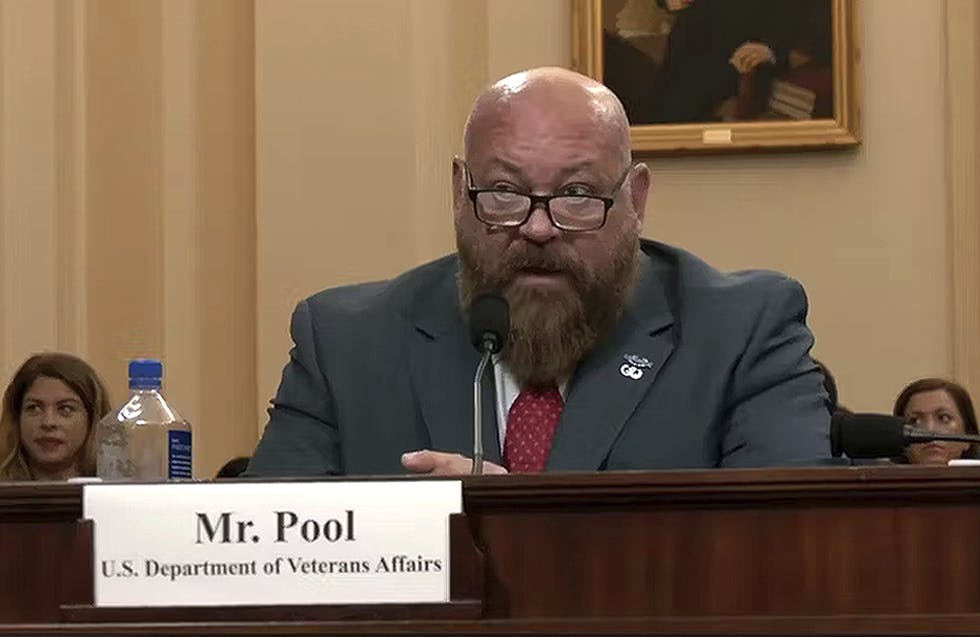AI Adoption at Federal Agencies Requires a Strategic Approach to Data, Workforce
Thundercat Technology and NetApp go over key strategies for federal agencies looking to adopt AI.

The White House wants federal agencies to “embrace” artificial intelligence in government services according to the February 2020 update to its American Artificial Intelligence Initiative, and many agencies are strategizing the best ways for adopting the technology in their processes.
For AI to make the most impact in the federal government, government agencies should “start with a good problem where AI can make a significant difference,” said NetApp Chief Technology Officer Kirk Kern.
“Find a problem that cannot be solved by traditional analytics or model-based simulations,” Kern said in a video interview. “What we’re seeing is there’s a tremendous increase in processing power in these GPU architectures, and that increase in processing power gives us a tremendous amount of capability to advance the science around AI.”
Some examples of problems AI can solve for the government are workforce optimization and modernization, improving data research capabilities, preventing fraud and waste, and forecasting federal supply chain shortages.
The Department of Veterans Affairs recently launched an AI program and is exploring ways to leverage their AI data sets for a variety of use cases.
“I think you’d be hard pressed to find an area where AI and machine learning is not making an impact [in government],” said Kurt Steege, CTO for Thundercat Technology.
When most people hear the phrase “artificial intelligence,” they think of “sci-fi warnings and machines taking over the world and losing jobs,” Steege said. But that’s not what AI is about. Many AI-based tools focus on simplifying and optimizing IT processes and then incorporate human interaction to run them.
Training an AI-ready workforce is another focus of the White House’s 2020 update.
“I think there’s a huge opportunity for institutions and kids to learn the skill sets needed to run these types of environments at scale,” Steege said.
The White House notes the federal government needs to invest in more research and development for AI so that federal agencies and the private sector can ramp up AI adoption. Kern said the federal government could face challenges when transitioning operations to AI applications and encounter “unpredictable costs.”
The federal government’s cloud strategy offers useful guidance for procurement and security when transitioning operations to the cloud, Kern noted, adding that government agencies should keep in mind that AI will have a profound impact on cloud-based operations.
“AI will have a larger impact on the modernization of IT and cloud consumption,” he said. “As you move quickly from project to program, it’s going to require policy changes so AI systems can operate at the right level in the right systems. It’s going to require multiple changes to make AI a common entity operating in government agencies.”
At an AI summit last year, Federal CIO Suzette Kent emphasized the importance of data to AI success, and said investing in data collection would be the biggest hurdle for federal agencies.
To accelerate AI adoption, federal agencies will need to allow access to copious amounts of data and be willing to work with open-source software to customize AI solutions for their individual needs, Steege said.
Thundercat and NetApp have partnered to help federal agencies get started with AI adoption. Some of the AI solutions they’re working on are serverless computing, scientific data processing and image recognition.
“Thundercat has partnered with NetApp to develop replicated storage and AI solutions for agencies, and is talking with folks right now about the storage components for large HPC and AI solutions out there,” said Steege.
This is a carousel with manually rotating slides. Use Next and Previous buttons to navigate or jump to a slide with the slide dots
-

White House Unveils AI Action Plan to Secure Global Dominance
The strategy outlines steps to accelerate private sector innovation, build critical infrastructure and advance U.S. leadership in AI policy and security.
3m read -

VA's Platform One Powers Rapid Innovation to Bolster Digital Services
VA's Platform One accelerates software development timelines from weeks to hours, ultimately enhancing digital services for veterans.
5m read -

Federal Leaders Receive Federal IT Efficiency Flywheel Awards from GovCIO Media & Research
Five federal IT leaders received Flywheel Awards for driving innovation and modernizing technology at the Federal IT Efficiency Summit.
5m read -

Doing More with Less is Muscle Memory for IRS, Former Deputy CIO Says
Darnita Trower discusses her experience, the legacy she’s left behind and how she pushed the IRS to modernize itself,
20m watch -

Opinion: Original Intelligence Is the Missing Piece for AI Transformation
Limitations of AI agents and development drive growing needs for workforce development and "original intelligence."
3m read -

VA CIO Targets Modern IT and Smarter Workforce Alignment
Agency leaders told lawmakers they are focused on trimming legacy systems and restructuring its workforce to streamline operations.
3m read -

Pentagon's $200M AI Contracts Signal Broader Effort to Transform Talent
The Army is leveraging Silicon Valley, reservist programs and new hiring strategies to integrate critical digital skills in its ranks.
5m read -

AI Foundations Driving Government Efficiency
Federal agencies are modernizing systems, managing risk and building trust to scale responsible AI and drive government efficiency.
43m watch -

Inside DOD’s Push to Grow the Cyber Workforce Through Academia
Diba Hadi gives her first interview since becoming principal director of the DOD’s Cyber Academic Engagement Office.
15m listen -

Agencies Tackle Infrastructure Challenges to Drive AI Adoption
Federal agencies are rethinking data strategies and IT modernization to drive mission impact and operational efficiency as new presidential directives guide next steps.
5m read Partner Content -

Generative AI Demands Federal Workforce Readiness, Officials Say
NASA and DOI outline new generative AI use cases and stress that successful AI adoption depends on strong change management.
6m read -

The Next AI Wave Requires Stronger Cyber Defenses, Data Management
IT officials warn of new vulnerabilities posed by AI as agencies continue to leverage the tech to boost operational efficiency.
5m read















